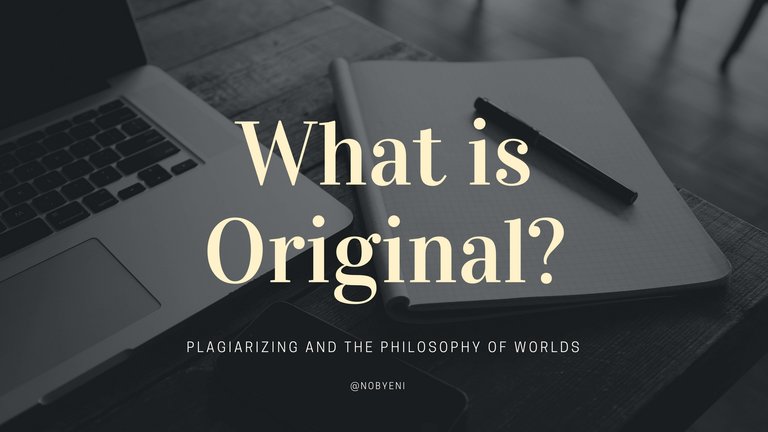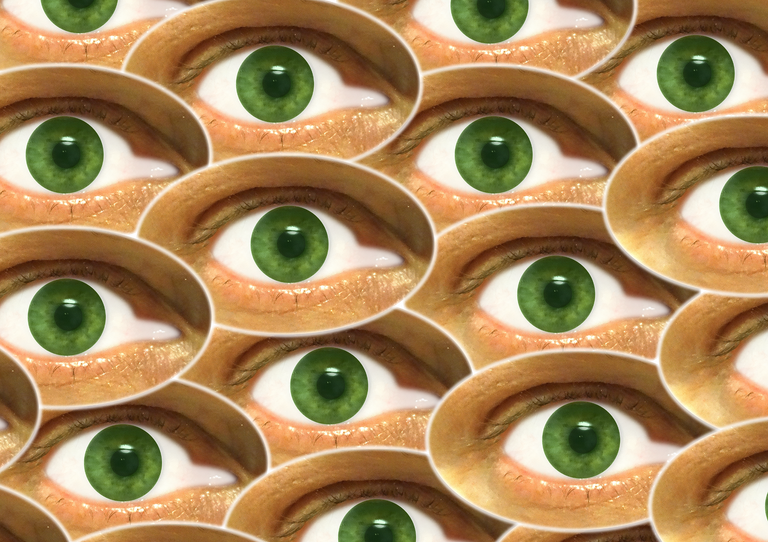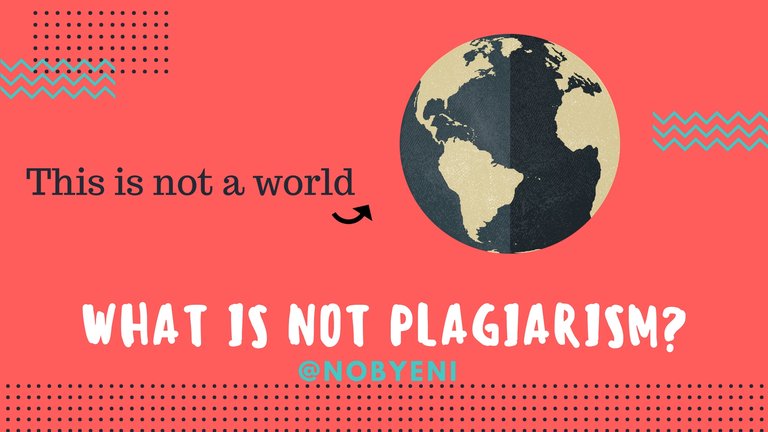
I've never really thought about plagiarizing a lot. The extensive systems that universities employ to check for plagiarism seemed redundant to me. When trying to learn something, when educating yourself, why would you even think about copying the work of someone else? It's not often you get the opportunity to have your work read and looked at by people you respect, by your professors, to get feedback that helps you learn even more. To use copied work seemed not only a waste of your own college tuition fees, but also of the professor's time and effort.

this site.)Yet plagiarizing is not just about copying someone's words. It is not just taking someone else's work and putting your own name on it. That type of plagiarizing does happen. A lot, unfortunately. I'm glad for initiatives like @steemcleaners, @cheetah and @submarine, to name but a few that I know off. But it also saddens me that people are so uninterested in the legality of these things, about not just stealing something - but trying to make money with it. This is what happens in the world, sure. But it's not a world I want to live in. (In case you do want to report on some plagiarized content on Steem, I recommend visiting
What is original?
Plagiarizing once more raises the question: what is originality anyway? On the website of 'the writers of the future' you can read the following:
"Plagiarism includes the use of (...) another person’s universe."
Maybe this sounds obvious, especially in the sci-fi business of writing stories that take place in a specific world that is only limited by the author's mind. But philosophically, this is an insane and super interesting definition. Because philosophers love the concept of 'world'.
A philosophical 'world' is a shared understanding of reality, a common ground because of which we can interact with each other. We need to share some basic things, some basic ideas about what reality is, what it means to be human, what language is, in order to live and work together. There are many different small worlds, which have their own set of definitions and their own language. World in this sense doesn't refer to 'planet', but to the world you mean when you say 'women come from Venus and men from Mars'.

Think for instance about the book 1984 by George Orwell. He used this concept in a genius way, exploring how much of our world can be programmed and made by someone in power. That someone, is not a specific person, but the collectively of us, of course. The world, is the set of the people that make up that world.
In this sense, you always belong to a world. Whatever you write, think, create, is at least somehow related to the world you live in. What then, does it mean to be original. If original is understood as something that has never been done before, never thought or considered ever before, it might very well be impossible to be truly original. But if original means a unique configuration of things that are already present in a specific world, wouldn't that mean it is not truly different or new at all? In other words, when we consider the philosophy of worlds, is it possible to not use or relate to a world that already exists?
Words...
When you use a word, that word already has a meaning. It has a whole history, an etymology that directs and generates a meaning, even if you change its meaning. Can you take a word and use it to create something original? Are poetry, novels, any writing, not just a different order of things, which do not break with the world from which they stem?
I think thoughts like this lead to depression among creative types. No matter what they do, they will see their life, their earlier experiences reflected in the work they produce. But there is nothing wrong with that. As Nietzsche says, even philosophy is always autobiographical, it is related to life, and your life is part of a specific world.

We have to reconsider what 'original' actually refers to. Not only to understand what our own desire as original content producers is, but also to understand plagiarism better. We always work with and inside another's world. But that doesn't mean we plagiarize. That we steal someone else's work and try to make money off work we haven't done ourselves.
Plagiarizing is a copying without embodying the material ourselves. Plagiarizing is a disregard and a disrespect to another person's work and effort.
More philosophy of worlds?
Of course different philosophers define 'world' differently. I might have to write separate posts to explain each and every one of these perspectives. But for now, this might be a reading list for those interested in this topic of 'worlds'. You can read Alain Badiou's 'Logics of Worlds' if you're interested in this topic. Also Thoma's Kuhn's work on scientific revolutions introduces a specific concept of world. Foucault's work on episteme is fundamental to this notion, his book 'the Order of Things' explains this best, in my opinion. Or even look to Jurgen Habermas' theory of communicative action. Or if you're more into short and to the point work, try Giorgio Agamben's essay 'On the Apparatus'.
If you have specific questions, of course feel free to raise them in the comment section, and I might be able to answer as a comment, or to write a new post about it. This is what the power of community is like. Or should be like. Inspire and be inspired.

Art is the process of inhaling inspiration and exhaling creation.
That tiny addition of breath creates something new, original, never before seen.
An idea can be considered similar to another idea, even more so when you abstract and deconstruct them both to find common links, but similarity is not facsimile.
Besides, the perspective of the writer and the perspective of the reader will differ enough that what is read will never reflect the exact same concept as what was written.
Absolutely agree. Which is why thinking about that limit-position, as Derrida likes to call it, is so interesting. it is something we experience, as creative people. But who to think it, philosophy hasn't properly figured out, imo.
Learning isn't a pursuit of new knowledge as much as it is a commercial endeavour. Non-conformity doesn't pay as much as the form of plagiarism that you described does. Originality is often not even condoned, let alone required anymore.
We have to occupy a 'condoned world worldview with allowed beliefs then go ahead ad nauseum with the art of plagiarising by recycling and rephrasing to reach the same conclusions, or else'.
Yes, or else! Let's start there.
or else, something new may actually be proven and that would shatter a lot of glass worlds to pieces.
the world feeds on ideas of people, every new idea found its resting place on a previous or older idea. in short there is nothing new that exists. so the world is full of plagiarism in my own perspective.
Very interesting. And reading your blog, I can see what you mean.
Funny how plagiarism is all around nowadays, back then when there wasn't much of internet people had to strive for more knowledge.
Funny how you obviously read the first paragraph of this post.
I think it's so difficult to define because our own thoughts may not be truly original. I'd say plagiarism could be defined in proportion to the creative effort involved. If your work is composed mostly by your own ideas(even if you learned them from somewhere else) without trying to copy, its good enough.
Also I have mixed feelings about steemcleaners and cheetah. I've seen them censoring people by mistake. Or even going further and censoring entire blogs for being called nazis.